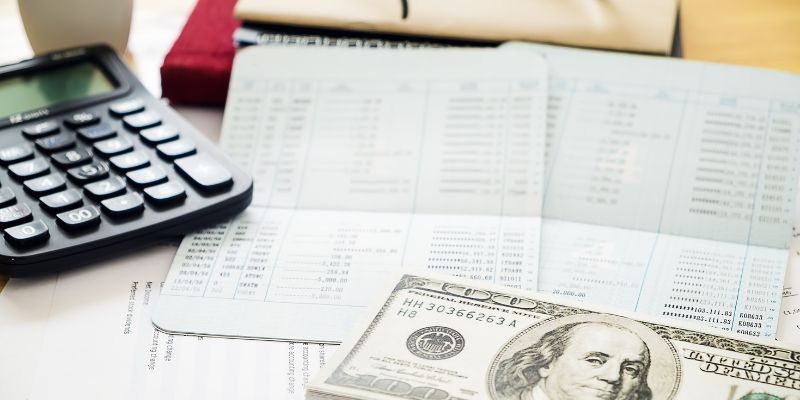Buying your first home is indeed thrilling, but it's also a major financial commitment. Those looking to purchase a house or invest in real estate don't have to worry about going bankrupt since there are many creative ways to do it.
Buying an REO (real estate-owned) home is one option. Here, you'll find information about the purchasing process for such real estate.

What Does "REO" (Real Estate Owned) Mean?
A bank-owned property that didn't sell at a foreclosure auction is known as real estate owned (REO). In the event of a default on a mortgage, the homeowner has the option of either selling the property and offering the money to the lender or surrendering the property to the lender for foreclosure.
When a borrower stops making payments on a loan, the lender (often a bank) may legally take possession of the property and try to sell it to recoup their losses. It is called foreclosure. Lenders often sell foreclosed properties at auction to the highest bidder after an open bidding process.
Even the greatest offer may be lower than the amount the lender attempts to recover. If that happens, the lending institution takes control of the home until it can be sold for enough to cover the loan.
Guide To Purchasing An REO Property
Banks prefer to have cash on hand than holding REO homes on their books. If you're looking for a bargain, you're in luck: REO properties often sell for less than they're worth. If you're considering buying an REO home, here are some measures you should follow.
Obtain Financing Preapproval
The mortgage procedure should proceed smoothly. The lenders want to unload REO homes as soon as possible to avoid delays. Getting pre-approved for a mortgage loan will help you know how much you can afford to spend on a property.
It gives you more bargaining power when it comes time to make an offer. There is a need for a Proof of Funds letter to be obtained from the financial institution holding the funds. It shows the selling bank you can afford the home.
Take A Buyer's Agent Into Account
An agent is not required to purchase REO property; nevertheless, having someone else handle negotiations with the banks on your behalf may be a huge time and stress saver. That is what a buyer's agent does. Furthermore, they must act in your best interest by fiduciary duty.
Additionally, the buyer's agent is often compensated by the seller, so working with one won't cost you anything. To maximize your chances of success, you should use a real estate agent familiar with REOs.
Propose A Deal
Once you've located the perfect home, it's time to submit an offer to the bank for financing. Working with a broker will allow them to assess the market and make a competitive offer on your behalf. It's crucial to strike the correct balance between price and other factors; the bank will likely reject your offer if it's too low.
If the bank accepts your offer, you will enter into a contract with them and officially become the new owner. An earnest money deposit of one percent to two percent of the purchase price may also be needed up front and kept in escrow until the deal's closing.
Keep in mind that the seller may impose a penalty for each day that the closing is delayed on an REO property. Avoid delays by scheduling inspections quickly and arranging money in advance.
Have A Home Inspection
An REO house inspection is vital. As the buyer, you are responsible for making necessary repairs to the property. The house you're considering may be in excellent condition. However, it's not uncommon for previous owners to neglect or destroy foreclosed houses.
An expert examination will reveal any problems and estimate the costs to make the house livable after you buy it. When you add up the cost of repairs and upkeep, an REO home may be too expensive for you.
In addition, when the property went into bank ownership, the lender may have conducted an examination. In such a case, you may assess the report's depth of coverage. But if the property has been empty for a long time, you may want a second opinion. The average cost for this is $300-$500.
Conduct A Title Search
In addition to having the house inspected, it is recommended that a title search be conducted on the property. You also want to eliminate the possibility of a lien against the property. The former owner can still owe money for things like property taxes.
Instead of a warranty deed, a quitclaim deed is usually given to the buyer of a property that has been declared real estate owned (REO). In this case, the lender only transfers an interest in the property and cannot provide any assurance that the property is free and clear of any outstanding judgments.
You may be accountable for some debts after purchasing a home that survived foreclosure. Property titles may be checked for problems because of the accessibility of lien records. A title search business might be hired to provide this service for you. The price varies in each state but generally costs $150.

Conclusion
Real estate-owned (REO) property investing may be lucrative for flippers and prospective landlords, but there are also risks. It's in your best interest as an investor to familiarize yourself with REOs and the process by which they are acquired before moving into this market. There is always the potential for loss when putting money into real estate.
Investing in a real estate-owned (REO) property might pay off handsomely if you're lucky, but it can also go wrong if you can't sell it or find a tenant you can trust. The only way to ensure a return on investment is to investigate the local real estate market and the homes you're considering.





